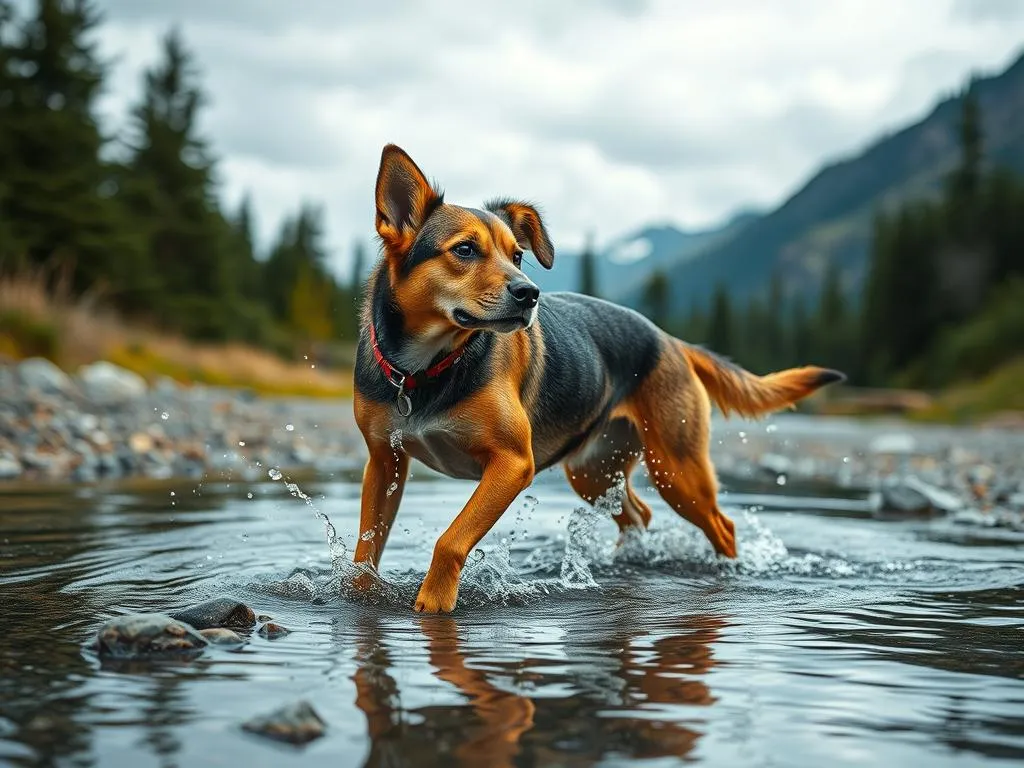
Introduction
As responsible pet owners, understanding the importance of dog health care is essential for ensuring our furry friends lead happy and healthy lives. One of the most critical components of dog health is hydration. Just like humans, dogs require a sufficient amount of water to maintain their bodily functions. This leads us to a vital question: How long can a dog go without water? Understanding this topic is crucial for dog owners, as it can have significant implications for our pets’ well-being.
The Role of Water in Dog Health
Importance of Hydration
Water is a fundamental element that supports numerous bodily functions in dogs. It aids in digestion, facilitates circulation, and helps regulate body temperature. Dogs lose water through various processes such as urination, respiration, and perspiration. Therefore, replenishing their water supply is vital for maintaining optimal health. A well-hydrated dog is more energetic, has a better appetite, and can effectively regulate its body temperature, especially during hot weather or after physical activity.
Signs of Dehydration in Dogs
Recognizing the signs of dehydration is crucial for any dog owner. Common symptoms include:
- Dry gums: The gums may appear tacky or dry instead of moist.
- Lethargy: A dehydrated dog may be less active or seem tired.
- Loss of skin elasticity: When you gently pinch the skin on the back of your dog’s neck and it doesn’t quickly return to its original position, this can indicate dehydration.
One effective way to assess hydration levels in dogs is the skin tent test. Pinch the skin on the back of your dog’s neck; if it doesn’t spring back quickly, your dog may be dehydrated.
How Long Can a Dog Go Without Water?
General Guidelines
On average, a dog can survive without water for 3-5 days. However, this timeframe can vary significantly based on several factors.
Individual Variations
- Breed Differences: Some breeds may have different water needs. Larger breeds, for instance, might require more water than smaller ones.
- Activity Level: An active dog will need more water than a sedentary one. Exercise increases water loss through panting and perspiration.
- Climate: Hot or humid weather can drastically increase a dog’s water needs. Dogs may become dehydrated more quickly in these conditions.
- Health Conditions: Dogs with certain health issues, such as kidney disease or diabetes, may have altered water needs and could become dehydrated faster than healthy dogs.
Understanding Your Dog’s Water Needs
Daily Water Requirements
The amount of water a dog needs can vary based on size and weight. A general guideline suggests that dogs should drink about 1 ounce of water per pound of body weight each day. For instance:
- A 10-pound dog needs approximately 10 ounces of water.
- A 50-pound dog requires around 50 ounces of water.
To ensure your dog stays hydrated, monitor their water intake and refill their bowl with fresh water regularly.
Tips to Encourage Hydration
There are several strategies to encourage your dog to drink more water:
- Provide fresh water: Change your dog’s water daily to keep it fresh and appealing.
- Use water fountains: Some dogs prefer to drink running water. Pet water fountains can entice them to drink more.
- Offer water after exercise: Always provide water after walks or playtime to replenish fluids lost during activity.
Consequences of Dehydration
Short-term Effects
Dehydration can lead to immediate health issues. A dog who is dehydrated may exhibit symptoms such as decreased energy levels and poor appetite. They may also experience dry nose and mouth, indicating they need water.
Long-term Risks
If dehydration persists, it can result in more severe health complications, including:
- Kidney damage: Prolonged dehydration can affect kidney function and lead to serious health issues.
- Urinary tract infections: Insufficient water intake can increase the risk of urinary tract infections, as concentrated urine can irritate the bladder.
Regular vet check-ups are essential for monitoring your dog’s hydration health and overall well-being.
Prevention and Management
Establishing a Hydration Routine
Creating a hydration routine can significantly benefit your dog’s health. Here are some tips:
- Set a schedule for water breaks: Designate specific times for water breaks, especially during play or exercise.
- Routine during hot weather: Ensure your dog has access to water during hot days, and increase the frequency of water breaks.
Recognizing When to Seek Veterinary Care
Knowing when to seek veterinary care is crucial. Look for signs of severe dehydration such as:
- Sunken eyes
- Rapid heart rate
- Persistent vomiting or diarrhea
If you notice these symptoms, contact your veterinarian immediately for advice or intervention.
Dehydration and Specific Situations
During Travel
Traveling can be a challenge when it comes to keeping your dog hydrated. Here are some tips for ensuring your dog stays hydrated during long car rides or vacations:
- Pack water: Always bring water for your dog when traveling.
- Take breaks: Plan regular breaks during long trips to allow your dog to drink and relieve itself.
- Use portable water bowls: These can be a convenient way to provide water on-the-go.
In Hot Weather
Hot weather can pose a significant risk for dehydration. Here are strategies to prevent overheating and dehydration during the summer months:
- Provide shade: Ensure your dog has access to shaded areas when outside.
- Use cooling mats: These can help keep your dog cool during hot days.
- Monitor activity levels: Be mindful of your dog’s activity levels to prevent overheating. Limit vigorous exercise during peak heat times.
Conclusion
In conclusion, hydration is an essential aspect of overall dog health. As a dog owner, it’s crucial to understand how long a dog can go without water and the implications of dehydration. Regularly monitoring your dog’s water intake, recognizing the signs of dehydration, and being proactive about their hydration needs can significantly impact their health and well-being. Being informed and responsive to your pet’s health needs will ensure they lead a healthy, happy life.
By understanding the importance of hydration, you can take the necessary steps to keep your dog well-hydrated and healthy throughout their life.









